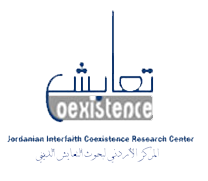
Interfaith dialogue refers to cooperative, constructive, and positive interaction between people of different religious traditions and/or spiritual or humanistic beliefs, at both the individual and institutional levels. It is distinct from syncretism or alternative religion, in that dialogue often involves promoting understanding between different religions or beliefs to increase acceptance of others, rather than to synthesize new beliefs.

Rania Al-Abdullah is Queen of Jordan as the wife of King Abdullah II.

The Muslim World League is an International Islamic NGO based in Mecca, Saudi Arabia that promotes what it calls the true message of Islam by advancing moderate values that promote peace, tolerance and love.
Dr. Sayyid M. Syeed is the former President and former national director for the Office for Interfaith and Community Alliances for the Islamic Society of North America (ISNA), a national umbrella organization which has more than 300 affiliates across the United States and Canada.

The Interfaith Encounter Association (IEA) is an Israeli-based non-profit organization. Its primary purpose is to foster dialogue between different religious groups within the Holy Land. This is done on a grassroots level throughout Israel and the Palestinian Territories.
"A Common Word between Us and You" is an open letter, from October 13, 2007, from Muslim to Christian leaders. It calls for peace between Muslims and Christians and tries to work for common ground and understanding between both religions, in line with the Qur'anic command: "Say: 'O People of the Scripture! come to a common word as between us and you: that we worship none but God" and the Biblical commandment to love God, and one's neighbour. In 2008, the initiative was awarded the Eugen Biser Award, and the Building Bridges Award from the UK's Association of Muslim Social Scientists.
The Temple of Understanding is an interfaith organization founded in 1960 by Juliet Hollister and located in New York City.

Prince Ghazi bin Muhammad is a Jordanian prince and a professor of philosophy. He is the son of Prince Muhammad bin Talal of Jordan and his first wife, Princess Firyal. He is a grandson of King Talal of Jordan and thus a first cousin of King Abdullah II and eighteenth in the line of succession to the Jordanian throne. He is well known for his religious initiatives, about which a book was published in 2013.
European Council of Religious Leaders (ECRL) is a European interreligious council for cooperation between senior leaders of religious traditions represented in Europe (Judaism, Christianity, Islam, Buddhism, Hinduism, Sikhism and Zoroastrianism). The ECRL is one out of five regional interreligious councils within the global movement, Religions for Peace. The Council held its inaugural meeting in Oslo in 2002.
The Center for World Religions, Diplomacy and Conflict Resolution (CRDC) is an arm of George Mason University's Jimmy and Rosalynn Carter School for Peace and Conflict Resolution. CRDC engages in practice, education, and research concerning peace-building in conflicts where religion and culture play a significant role in a destructive conflict. CRDC specializes in entrepreneurial engagement with partners, students and supporters who share the goal of promoting emerging networks of indigenous and global peacemakers; mobilizing support for them; and forging links between such people, citizen-diplomats, and policymakers.
Daisy Khan is a Kashmiri-American Islamic campaigner, reformer, and executive director of the Women's Islamic Initiative in Spirituality and Equality (WISE), a women-led organization committed to peacebuilding, equality, and justice for Muslims around the world. Khan is a frequent media commentator on topics such as Muslim women's rights, Islam in America, Islamophobia, and violent extremism. In 2017, Khan published WISE Up: Knowledge Ends Extremism, a report intended to prevent the rise of hate and extremism and develop narratives of peace. Her memoir, Born with Wings, was published by Random House in April 2018. Khan has consistently been recognized for her work. She was listed among Time magazine's "100 Most Influential People", the Huffington Post included her in their "Top Ten Women Faith Leaders", and More magazine has described her as "a link between moderate Islam and the West."
World Interfaith Harmony Week is a UN resolution for a worldwide week of interfaith harmony proposed in 2010 by King Abdullah II and Prince Ghazi bin Muhammad of Jordan. The World Interfaith Harmony Week falls in the first week of February of every year and aims to promote harmony between all people regardless of their faith.
The Interfaith Center of New York (ICNY) is a secular educational non-profit organization founded in 1997 by the Very Reverend James Parks Morton. ICNY programs work to connect religious leaders and their communities with civil organizations and each other.

Muhammad bin Abdul Karim Issa is a Saudi Arabian politician, Secretary General of the Muslim World League, President of the International Islamic Halal Organization, and former Saudi Minister of Justice.
Sally ("Salwa") Shatila Kader is the co-founder and president of the International Federation for Peace & Sustainable Development, a bipartisan, non-profit and non-governmental organization, which has seventeen chapters around the world including its headquarters in New York City. Kader is a peace activist and currently leads IFPSD programs and events at the United Nations Headquarters in New York City and around the world. She has been recognized by world leaders and organizations for her contributions towards peace.
Ephraim Isaac is an Ethiopian scholar of ancient Ethiopian Semitic languages and of African and Ethiopian civilizations. He is the director of the Institute of Semitic Studies at Princeton University and the chair of the board of the Ethiopian Peace and Development Center.
Nabil Haddad is a priest in the Melkite Greek Catholic Church and a leading figure among Arab Christians in Jordan. He is the founder and current director of the Jordanian Interfaith Coexistence Research Center (JICRC) in Amman, Jordan.

Imam Shamsi Ali is a prominent Indonesian Muslim Scholar known for promoting interfaith dialogues among Abrahamic Religions in United States and the Chairman of the Al-Hikmah Mosque and the Director of Jamaica Muslim Center in Jamaica, Queens, New York City.
The Interreligious Coordinating Council in Israel (ICCI) was founded in 1991 to further understanding and communication between members of different faith communities and to build foundations for lasting fellowship.
"Our mission is to harness the teachings and values of the three Abrahamic faiths and transform religion's role from a force of division and extremism into a source of reconciliation, coexistence and understanding for the leaders and followers of these religions in Israel and in our region."

Sayyid Ibraheem Khaleel Al Bukhari is founder and chairman of Ma'din Academy and adviser of World Interfaith Harmony Week. He is a sunni Islamic scholar, General Secretary of Kerala Muslim Jamaat, a body of various Muslim organisations in Kerala and he is listed in The Muslim 500.








